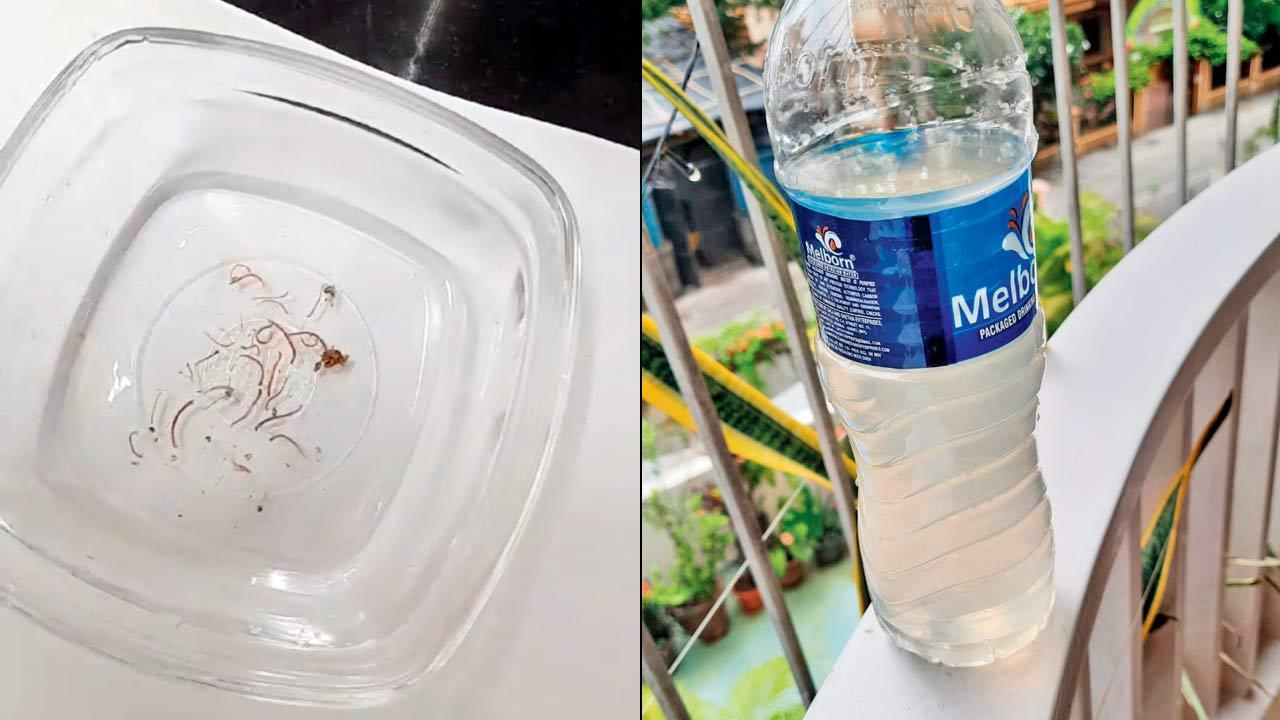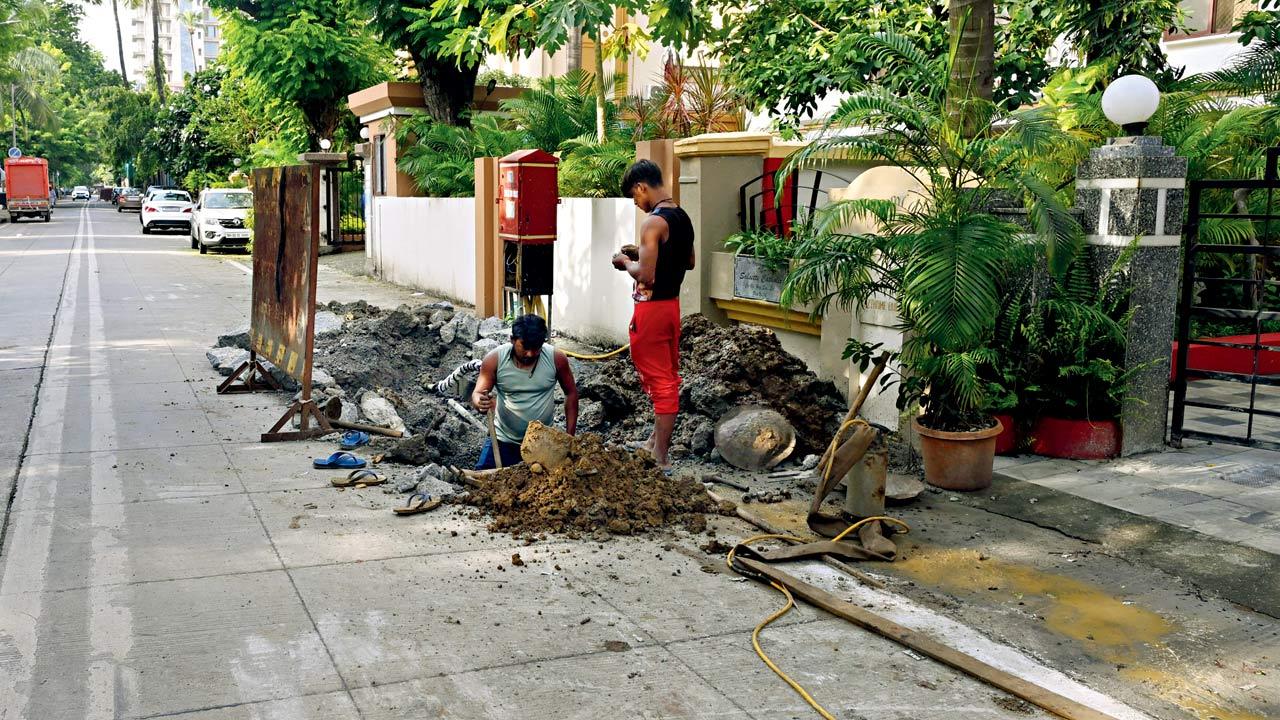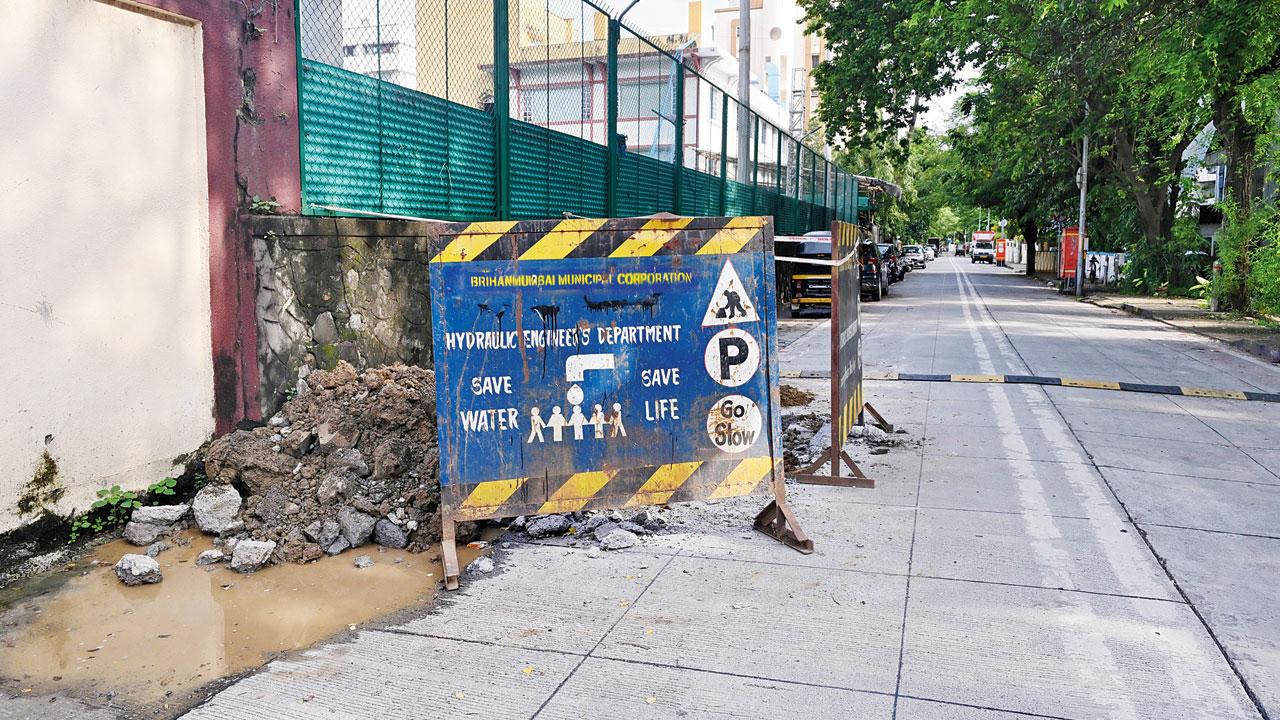Fifteen Bandra buildings facing severe illnesses, as lab test reveals presence of coliform bacteria, linked to human, animal waste matter

Water supplied to the housing societies’ members, which is murky and contains red worms. Pics/Prasun Choudhari
Water supplied to 15 housing societies around D’Monte Park in Bandra West has been found to contain coliform bacteria—typically found in faecal matter. The number is expected to increase as other societies await lab test results. Alarmed by the impurities and red worms observed in tap water for the past 10 days, locals recently took matters into their own hands, sending multiple water samples for testing.
Tap water from several socities of D'monte park road area, Bandra West, has tested positive for E. Coli bacteria. The tap water also contains visible red worms. Residents are relying on bottled water for 10 days now @mid_day @mybmc#waterpollution #watercontamination #bandra pic.twitter.com/6YjaCbMFww
— Prasun Choudhari (@PrasunChoudhari) August 30, 2024
The results from the private lab where the water was sent for testing reads, “Coliform of bacteria found. As per Chek Nees water testing, the colour has changed from violet to yellow which denotes it is not potable… Remarks: water is not fit for safe drinking use (sic).”

A concrete road near D’Monte Park in Bandra West is dug up on Thursday to locate the source of the contamination. Pic/Atul Kamble
Referring to a sample from a building in the locality sent to another lab, the report states, “We confirm that the water does not pass in parameters to IS:10500:2012 for Drinking water. Hence sample is not fit for human consumption (sic)”. The report has also confirmed the presence of E coli bacteria in the sample.
When mid-day visited residents’ houses on Thursday, red worms were seen wriggling in tap water. Dharmatejas Prasannadas, assistant engineer, waterworks department, H West ward, said, “We are aware of the matter and are trying to locate the source of contamination. E coli bacteria has also been found in the water.”
Signature campaign
In response to the findings, residents have initiated a signature campaign, calling on the Brihanmumbai Municipal Corporation (BMC) to address the issue. A resident of the Mon Repos building said, “We have had to rely on bottled water for the past 10 days. The BMC has asked us to let out water for 20 minutes before our societies’ water tanks are filled. On the one hand, water is scarce; on the other, we have been instructed to waste water. We are using the contaminated water for non-drinking purposes. Our society’s watchman has taken ill after consuming contaminated water. The BMC will collect water tax for the month, saying that the supply was not cut. We are petrified. We feel there is a need to escalate the issue as the BMC is not sure of the source of contamination and the same water will also be reaching other localities.”

The road in Bandra West dug up to locate the source of contamination. Pics/Atul Kamble
Health concerns
Another resident, speaking on the condition of anonymity, said, “We detected the issue on August 18 and immediately informed the authorities. After we received the lab results, on August 28, engineers from the BMC’s hydraulics and waterworks departments visited the area, but they were unable to pinpoint the source of the contamination. Yesterday, they began digging up concrete roads in the locality to trace the source of contamination. Today, they will be sending in a camera through the pipes to check for seepages and leaks. About 90 per cent of the area’s residents are senior citizens and we fear someone might fall sick if the issue persists.” Prasannadas, the assistant engineer said, “As per speculation, the source of contamination is far away from the spot, somewhere in the water line. We are trying to detect it. We are also checking pipelines in the locality.” He added, “We have not cut the water supply to the area as of now [5 pm on August 29].”
Research paper
According to a research paper published in July 2023 by the New York State Department of Health, “Coliforms are bacteria that are always present in the digestive tracts of animals, including humans, and are found in their waste. They are also found in plant and soil material.” The paper continues, “Frequently, concentrations of pathogens from faecal contamination are small, and the number of different possible pathogens is large. As a result, it is not practical to test for pathogens in every water sample collected. Instead, the presence of pathogens is determined with indirect evidence by testing for an ‘indicator’ organism such as coliform bacteria. Coliforms come from the same sources as pathogenic organisms. As a result, testing for coliform bacteria can be a reasonable indication of whether other pathogenic bacteria are present.”

“Most coliform bacteria do not cause disease. However, some rare strains of E. coli, particularly the strain 0157:H7, can cause serious illness. Recent outbreaks of disease caused by E. coli 0157:H7 have generated much public concern about this organism. E. coli 0157:H7 has been found in cattle, chickens, pigs and sheep. Most of the reported human cases of E. coli 0157:H7 are caused by contaminated drinking water supplies. These are rare but dangerous. Although total coliforms can come from sources other than faecal matter, a positive total coliform sample should be considered an indication of pollution in your well [water source]. Positive faecal coliform results, especially positive E. coli results, should be considered an indication of faecal pollution in your water source,” the research paper states. The research paper also mentions the measures to be taken when such bacteria are detected, stating, “Boiling the water is advised until disinfection and retesting can confirm that contamination has been eliminated. A defective water source is often the cause when coliform bacteria are found in water.”
Expert Speak
Dr Bharti Rajuwala, medical superintendent, Rajawadi hospital said, “E. coli causes cholera, diarrhoea and loose motions. This leads to dehydration of the body. Implications of the E. coli bacteria depend on the strain of bacteria that is being detected. Some strains can be more dangerous than others.”
 Subscribe today by clicking the link and stay updated with the latest news!" Click here!
Subscribe today by clicking the link and stay updated with the latest news!" Click here!








